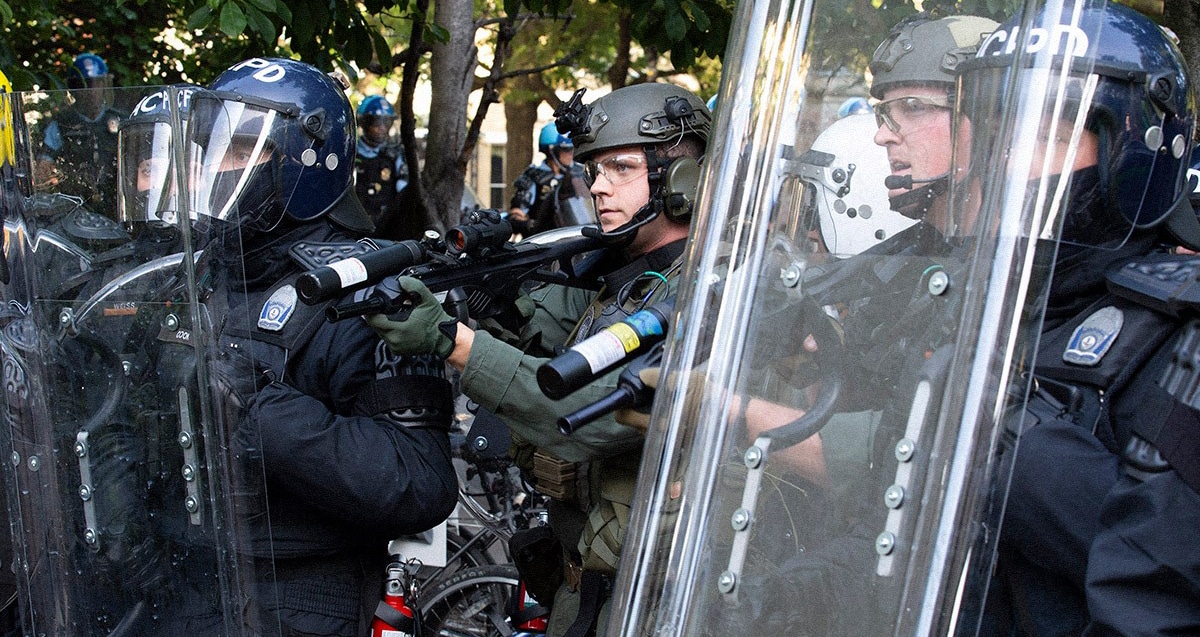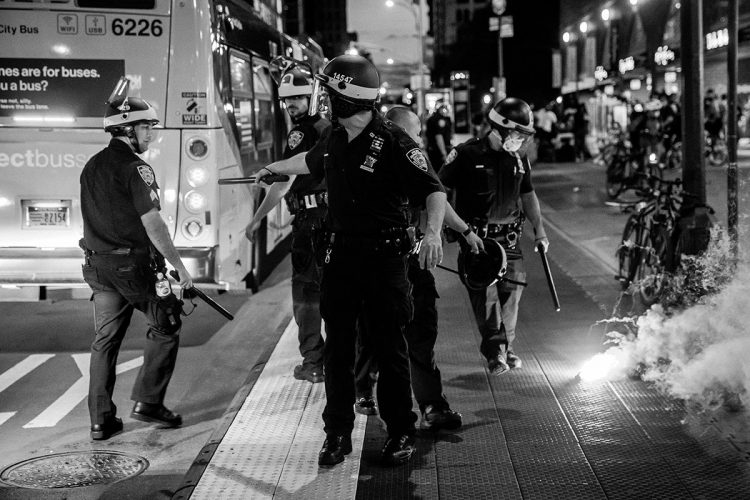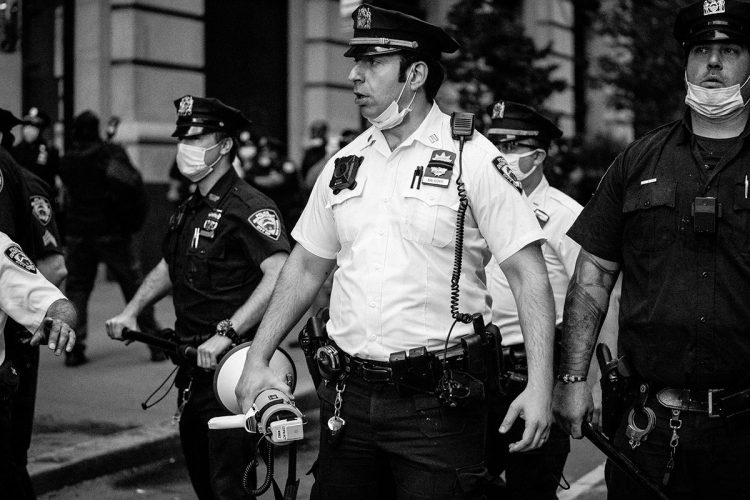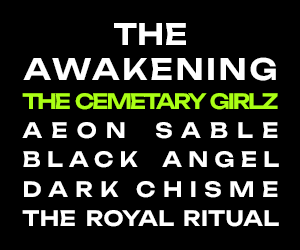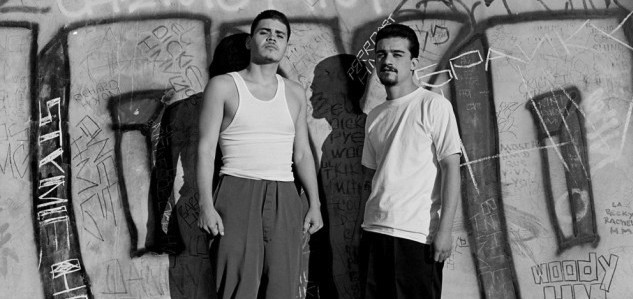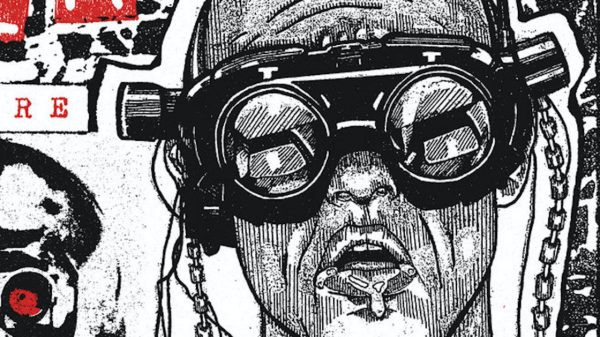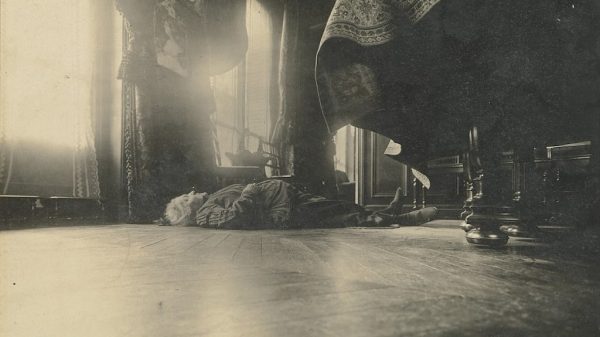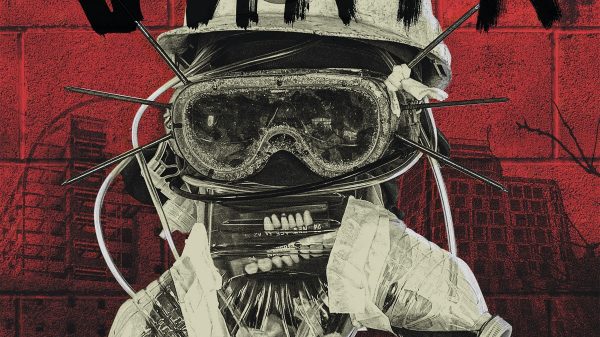via Highsnobiety / text: Joseph Genest
How many times are we going to have to hear that black Americans make up only 13 percent of the US population… but are killed by police at more than twice the rate of white Americans? It’s a statistic entrenched in the rotten core of policing in America.
Considering that we’ve known for some time now that domestic terrorists have infiltrated law enforcement, it’s mind-boggling the protections police have, as well as the lack of measures to do anything about it. Not only do police receive little to no federal oversight, but they actively grow their funds year after year, including for things like new military-grade weaponry. The biggest driving force behind why law enforcement is protected with such impunity is police unions, which provide advocacy for municipal forces.
Around two-thirds of all police officers are currently a part of a labor union. While they initially formed with the same intentions of other early American unions, the modern police union has grown into being a political machine. As a powerful force in local, state, and federal government, unions are one of the biggest reasons police are given so much authority over themselves. For far too many, this has struck fear in the hearts of Americans, asking when and how we can truly make a change, which starts with looking at how the modern-day police union came to be.
The History of Police Unions
Police unions started to form after World War I when the American Federation of Labor issued charters to police in 30 cities. Citing that salaries weren’t keeping up with inflation, police were resentful of their chief’s ability to get them raises, however, citizens and officials felt police shouldn’t be able to unionize over fears of public safety. This caused the first wave of unions to quickly dissolve, with the second round of union campaigns coming during World War II due to a surge in wartime employment. Although this attempt failed as well, it laid the foundation for Benevolent and Fraternal Organizations.
One of the oldest police benevolent organizations is the NYC PBA (Police Benevolent Association of New York), which currently represents 24,000 out of New York’s 36,000 officers, and is the largest labor union of police. Almost 20 years later, the Fraternal Order of Police was founded in Pittsburgh to negotiate with city hall, which now represents over 346,000 officers across the country. Although not officially recognized at first, more and more of these fraternal and benevolent organizations started to spring up over the years, with the culmination of their power beginning to take hold half a century ago.
In the 1960s, a wave of federal and state legislation was enacted that enabled collective bargaining between municipalities and public sector employees. Although strikes were outlawed, benevolent groups used striking and other illegal tactics to win their demands, beginning to gain political control. As the civil rights movement brought about further pushback against policing, unions started to strengthen. In combination with states passing Police Officer Bill of Rights (POBRs) in the ’70s, police unions now have a number of tools at their fingertips to dictate control.
As a result, the police are one of the only organizations given the autonomy to “police themselves.” They achieved this by using two primary tools: collective bargaining, as well as lobbying around the Law Enforcement Bill of Rights for each respective state. Let’s break down how they use each.
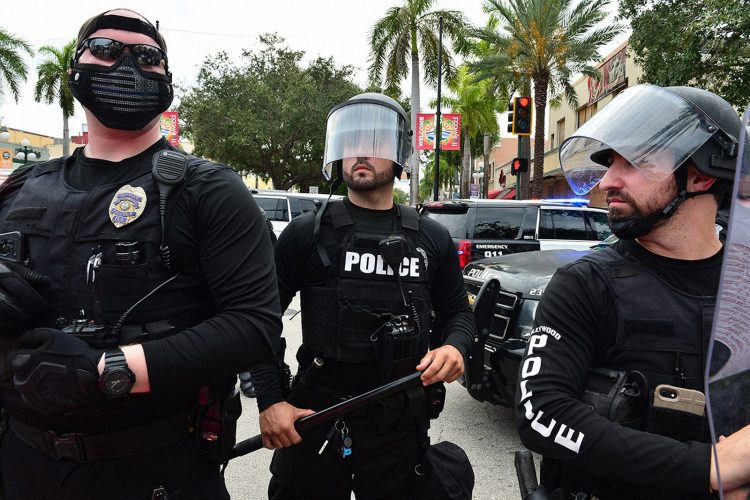
The Power of Collective Bargaining
As public sector employees, police are often able to collectively bargain their hours, wages, and the terms and conditions of employment.
We want to highlight that last part, because it’s where police derive their bargaining power. Courts have interpreted “terms and conditions of employment” to permit or require internal procedures used by police management to investigate or punish officers suspected of misconduct.
In other words, since the police can’t call the cops on themselves, they’re given the ability to create their own kind of legal system using labor contracts.
Collective bargaining agreements between police unions and municipalities vary city-by-city, which means they have different rules for each. By design, police unions are there to advocate for their members’ rights, which has included lobbying for policies and procedures that pushback against accountability and transparency. However, the finer details of these union contracts don’t just achieve these goals, but go well beyond into some shocking territory.
In 2017, Stephen Rushin published a study called Police Union Contracts in Duke’s Law Journal. Rushin analyzed over 178 union contracts from the largest police departments, which (in combination with state-level Officers’ Bill of Rights) found an array of criteria that could potentially impact investigations, including:
- Delaying interviews (often to ‘find a lawyer’, it’s also time for officers to get their story straight).
- Providing access to evidence before an interview.
- Limiting the scope of disciplinary history.
- Limiting the length of an investigation (or providing a statute of limitations).
- Limiting anonymous complaints.
- Limiting civilian oversight.
- Providing arbitration.
The study found that 88% of organizations contained at least one provision that could thwart disciplinary action.
Beyond just the broad provisions overlapping these organizations, the specifics of what each received is eye-opening.
Some noteworthy highlights:
- In Miami, an officer is allowed to choose which of their peers will make up their administrative disciplinary board.
- In Baltimore, their union negotiated the expungement of an officer’s performance, barring the public disclosure of disciplinary records, and limiting civilian oversight.
- Chicago is perhaps the most egregious, including the policies of erasing decades of misconduct, delaying interrogations, and preventing investigations of anonymous complaints. The union even went as far as to ask the city to “pony up by making concessions on disciplinary procedures” when told they couldn’t offer an increase in salaries. Less than 2% of civilian complaints against the Chicago Police Department result in disciplinary action, and due to the erasure of records, Chicago’s Independent Police Review Authority doesn’t even consider an officer’s history when examining a complaint.
Law Enforcement Officers’ Bill of Rights
In the 1970s, police unions started to lobby around the development of the Police Officer Bill of Rights/Law Enforcement Officer Bill of Rights (POBR/LEOBR). A powerful tool, the idea was initially conceived in retaliation to the demands of civil rights activists who wanted greater police accountability, including civilian review boards.
Designed to give an officer due process during disciplinary hearings, the results of LEOBRs have been mixed. While some unions argue they protect police from unfair leadership, as well as increase effective policing, certain policies are highly-questioned; for example, in some cases, what an officer says during an investigation cannot be admissible in criminal proceedings. In Maryland, their LEOBR includes preventing civilian oversight of an officer, limiting officer interrogation procedures, and even putting a 90-day deadline on filing for police brutality.
With these tools, police unions have a fair amount of political leverage they can use as well, including to change the rules for themselves.
A Political Powerhouse
Police unions have incredibly strong political power in nearly every municipality they dwell in. As lobbyists, they can be incredibly persuasive to both the public and politicians. Both Democrats and Republicans embrace police union endorsements to show they’re “tough on crime,” which has played an influential role in swinging criminal justice policy further right since the ‘70s.
Unions also have a prominent influence in pushing public policy. In 2015, Philadelphia Police Commissioner Charles Ramsey implemented a policy to release the name of officers involved in a shooting 72 hours after an incident. This was met with the Fraternal Order of Police not only challenging Ramsey’s policy as an unfair labor practice, but they additionally introduced legislation to the Pennsylvania house that would protect officers involved in shootings.
To push their efforts, unions often play the role of PR spokesman as well. In a study presented by St. Louis University on Our Uneasiness With Police Unions, they highlight a great example in Jeff Roorda, the Executive Director of the St. Louis Police Officers Association.
Roorda gained national recognition as the most vocal advocate for Darren Wilson after the shooting of Michael Brown, appearing on CNN, NPR, NBC, MSNBC, and Fox. Not only was Roorda able to be a powerful voice on the issue, but he also was able to directly make an impact as a state legislator as well: introducing a bill in 2014 to change Missouri’s open meetings and records law to keep secret any information about internal investigations of police officers or police shootings, unless the officer has been charged with a crime.
Yes, police unions are such powerful political machines, they often have almost all three branches of government working in their favor simultaneously on a state and federal level. However, that’s why the national conversation has been shifting towards redefining the role of police in society, as well as creating means of holding them accountable.
While their motto is “to protect and serve,” the police may not be the best candidate for that mission anymore. Instead, new solutions have started to spring up that could be not only the beginning of police reform, but a new era of servitude in general. Here are the most common conversations:
Giving Public Services a Facelift
Modern policing is outdated. As it was once argued that police should unionize so they didn’t have to do tasks like take the census or deliver unpaid tax bills, the same argument is being made to weaken them: police are being asked to do too much.
We rely on the police to deal with everything from the homeless to mental health issues, and a slew of other societal problems in between. As we’ve matured to a level where these services can be provided by trained professionals in their respective fields, the need for police to juggle multiple tasks is not only unnecessary, but has been incredibly dangerous as well.
In 2018, Marcus David-Peters was shot and killed off of I-95 in Richmond, VA during a mental health episode, which has reform advocates lobbying for a “Marcus Alert”— enabling the police department and Richmond’s Behavioral Health Authority to work together on calls of people experiencing a mental crisis. Proactive solutions like this help us not only better understand the role that new public servants play, but what police can do without.
Implementing Federal Guidelines
Currently, there’s no federal standard on policing. As noted in Rushin’s paper above, while The 1994 Crime Bill (Violent Crime Control and Law Enforcement Act) authorized the Attorney General and Department of Justice to investigate and suggest reforms to municipalities, the DOJ is careful not to interfere with altering the collective bargaining agreements, fearing unions will challenge the constitutionality of their reform recommendations.
This has also made forming federal legislation hard, as suggesting any bills to Congress around policing standards and reform will most likely be met with additional constitutional challenges, and possibly, an ensuing Supreme Court battle. However, if there’s any moment to start overturning the ballot on federal policing reform, it’s right now.
Lobbying For New Labor Laws
As police departments are lumped into state-level labor laws for the public sector, advocating for exceptions to law enforcement would be a good step in distinguishing their collective bargaining power. In particular, we should examine legislation around disciplinary measures and procedures, such as eliminating the ban on anonymous complaints, implementing a “three-strike” policy within a timeframe, or requiring interviews to take place within 24 hours of an incident.
Increasing “Sunshine Laws”
Police transparency laws (often referred to as “Sunshine Laws”), vary in what they provide to the public and when. According to a 2017 study called Let The Sunshine In: Illuminating The Powerful Role Police Unions Play In Shielding Officer Misconduct, Katherine J. Bies of Stanford Law laid out the following as states that have privacy laws on the books:
“New York, California, and Delaware specifically make law enforcement officer records confidential. A police officer’s disciplinary history is mostly unavailable through public records requests in Alaska, Colorado, DC, Idaho, Iowa, Kansas, Maryland, Mississippi, Missouri, Montana, Nebraska, Nevada, New Hampshire, New Jersey, New York, North Carolina, Oregon, Pennsylvania, Rhode Island, South Dakota, Virginia, and Wyoming.”
Beyond just public requests, there’s also a discussion about reforming transparency during criminal proceedings as well. For example, California has famously what’s called a Pitchess motion, which is the right for defendants in criminal cases to discover the content of a police officers’ personnel files. Laws like that could be especially helpful in areas of repeat police misconduct.
Defunding the Police
Taxpayers shell out quite a bit on the police state. In fact, some major cities spend over half their general fund on police.
Akin to the Department of Defense’s spending, it can be political suicide to suggest decreasing funding to the police. Despite how outrageous some programs are like police forces receiving the Pentagon’s hand-me-downs, politicians have never been one to advocate defunding the police (or defense), much less audit it to be more efficient.
With the rooted problems of policing in America boiling down to much more than just rectifying a budget, the rallying cry to defund police is getting louder and louder. On Sunday, Minnesota City Council announced their intent on defunding the police in exchange for community-led public safety (similar to the programs mentioned above), becoming one of the first to take the initiative. This is a consideration politicians around the country should take note of, because as we’ve seen over the past few weeks, people are becoming much more apt to taking change into their own hands.
How You Can Help
The fight for police reform starts with us. If we’re genuinely going to make any change, we have to start directing our resources towards those who can achieve specific action plans. That’s why we’ve included a few organizations that are getting the ball rolling on lobbying for new labor laws, advocating for defunding/reforming the police, and racial justice reform. Check them out below:

